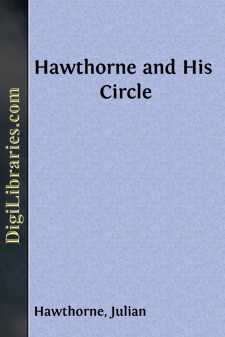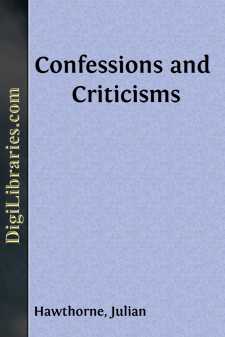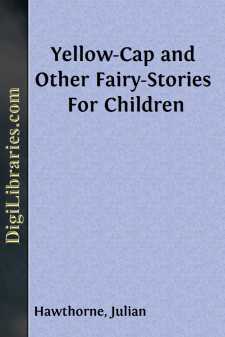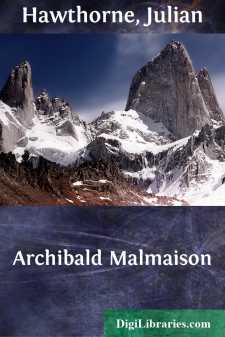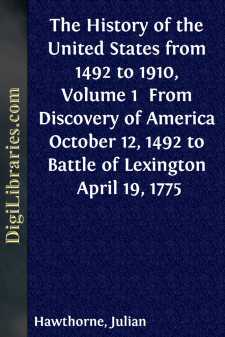Categories
- Antiques & Collectibles 13
- Architecture 36
- Art 48
- Bibles 22
- Biography & Autobiography 813
- Body, Mind & Spirit 142
- Business & Economics 28
- Children's Books 17
- Children's Fiction 14
- Computers 4
- Cooking 94
- Crafts & Hobbies 4
- Drama 346
- Education 46
- Family & Relationships 57
- Fiction 11829
- Games 19
- Gardening 17
- Health & Fitness 34
- History 1377
- House & Home 1
- Humor 147
- Juvenile Fiction 1873
- Juvenile Nonfiction 202
- Language Arts & Disciplines 88
- Law 16
- Literary Collections 686
- Literary Criticism 179
- Mathematics 13
- Medical 41
- Music 40
- Nature 179
- Non-Classifiable 1768
- Performing Arts 7
- Periodicals 1453
- Philosophy 64
- Photography 2
- Poetry 896
- Political Science 203
- Psychology 42
- Reference 154
- Religion 513
- Science 126
- Self-Help 84
- Social Science 81
- Sports & Recreation 34
- Study Aids 3
- Technology & Engineering 59
- Transportation 23
- Travel 463
- True Crime 29
Hawthorne and His Circle
by: Julian Hawthorne
Categories:
Description:
Excerpt
INTRODUCTION
Inheritance of friendships—Gracious giants—My own good
fortune—My father the central figure—What did his gift to
me cost him?—A revelation in Colorado—Privileges make
difficulties—Lights and shadows of memory—An informal
narrative—Contrast between my father's life and mine.
The best use we can make of good fortune is to share it with our fellows. Those to whom good things come by way of inheritance, however, are often among the latest to comprehend their own advantage; they suppose it to be the common condition. And no doubt I had nearly arrived at man's estate before it occurred to me that the lines of few fishers of men were cast in places so pleasant as mine. I was the son of a man of high desert, who had such friends as he deserved; and these companions and admirers of his gave to me in the beginning of my days a kindly welcome and encouragement generated from their affection and reverence for him. Without doing a stroke of work for it, I found myself early in the enjoyment of a principality of good will and fellowship—a species of freemasonry, I might call it, though the secret was patent enough—for the rights in which, unaided, I might have contended my lifetime long in vain. Men and women whose names are consecrated apart in the dearest thoughts of thousands were familiars and playmates of my childhood; they supported my youth and bade my manhood godspeed. But to me, for a long while, the favor of these gracious giants of mind and character seemed agreeable indeed, but nothing out of the ordinary; my tacit presumption was that other children as well as I could if they would walk hand in hand with Emerson along the village street, seek in the meadows for arrow-heads with Thoreau, watch Powers thump the brown clay of the "Greek Slave," or listen to the voice of Charlotte Cushman, which could sway assembled thousands, modulate itself to tell stories to the urchin who leaned, rapt, against her knees. Were human felicity so omnipresent as a happy child imagines it, what a world would this be!
In time, my misapprehension was corrected, rather, I think, through the application to it of cold logic than by any rude awakening. I learned of my riches not by losing them—the giants did not withdraw their graciousness—but by comparing the lot of others with my own. And yet, to tell the truth—perhaps I might better leave it untold; only in these chapters, especially, I will not begin with reserves—to say truth, then, my world, during my father's lifetime, and afterwards for I will not say how long, was divided into two natural parts, my father being one of them, and everybody else the other. Hence I was led to regard the parties of the latter part, rich or poor, giants or pygmies, as being, after all, of much the same stature and value. The brightness (in the boy's estimation) of the paternal figure rendered distinctions between other brightnesses unimportant. The upshot was, in short, that I inclined to the opinion that while compassion was unquestionably due to other children for not having a father like mine, yet in other respects my condition was not egregiously superior to theirs....


